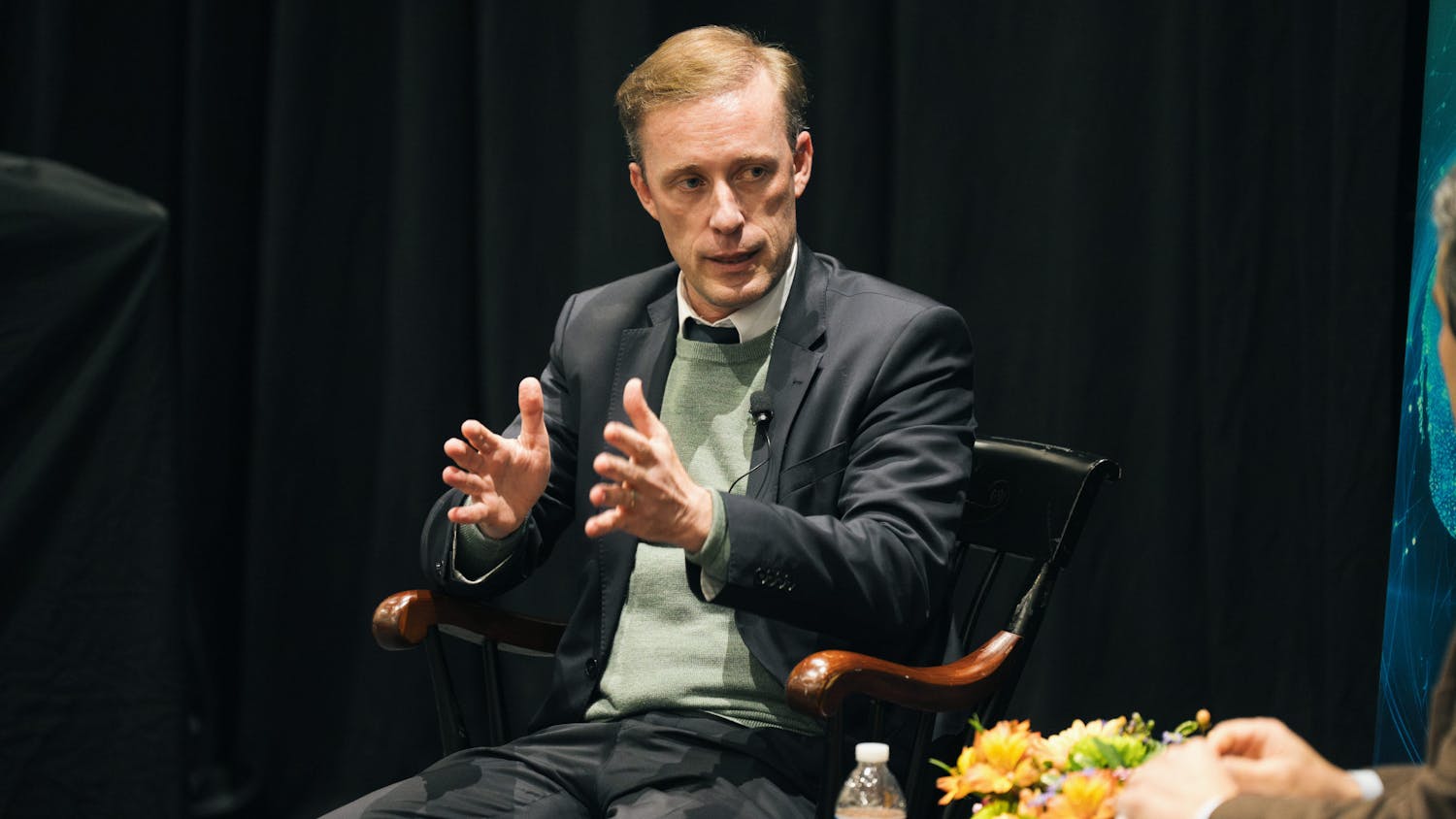Japan's top-ranked diplomat Kunihiko Saito spoke on the relationship between the United States and Japan to students in a Japanese politics class taught by Government Professor David Kang yesterday afternoon.
Saito, Japanese ambassador to the United States, said although the press tends to write about conflicts, the bilateral relationship between the two countries is "excellent" and the countries have very close political economic and security ties.
"In most cases, our interests are identical," Saito told the students in the class. The United States and Japan exchange information and consult each other in almost every field, he added.
"We need a healthy, friendly and cooperative relationship. We put in every effort to maintain the relationship," Saito said.
Saito, who was the ambassador to Iran at the time of Gulf War, said Japan was the first country to express its support during that war.
Saito added that the United States needs to take a leadership role to maintain world peace.
"We need the U.S. as a leader," Saito said. "The U.S. can maintain or restore peace. Generally speaking, the U.S. is a fair and generous leader."
Asked about trade disputes, Saito defended his country by saying Japan is not a closed economy, adding that it has the lowest tariff rate in the world. He also said the important thing is to contain the issues and not to let them develop into larger cases.
Saito added that some trade issues are "unavoidable" because the economic relation between the two Pacific Rim countries is so extensive.
Saito predicted that Japanese Prime Minister Keizo Obuchi will stay in his office for a few more years, and added that the government is working hard to revitalize the ailing economy. Saito said the government is taking measures such as tax cuts and deregulation to increase consumption to boost the economy.
He said deregulation is underway in all sectors and is necessary because "the old system that worked so well doesn't work any more unless we adjust to the global standard."
"I don't think we should be pessimistic about the future of Japan and the Japanese economy," Saito said.
After the speech, students asked an array of questions ranging from economic and trade disputes, to historical issues and to security issues.
Saito is a graduate of Tokyo University Law School and has been working for the Ministry of Foreign Affairs more than 40 years. Saito is a former Vice Minister of Foreign Affairs, the highest bureaucratic position in the ministry.
Masuo Iwanami '27, one of the first Japanese students at Dartmouth, is an uncle of Saito's wife.



